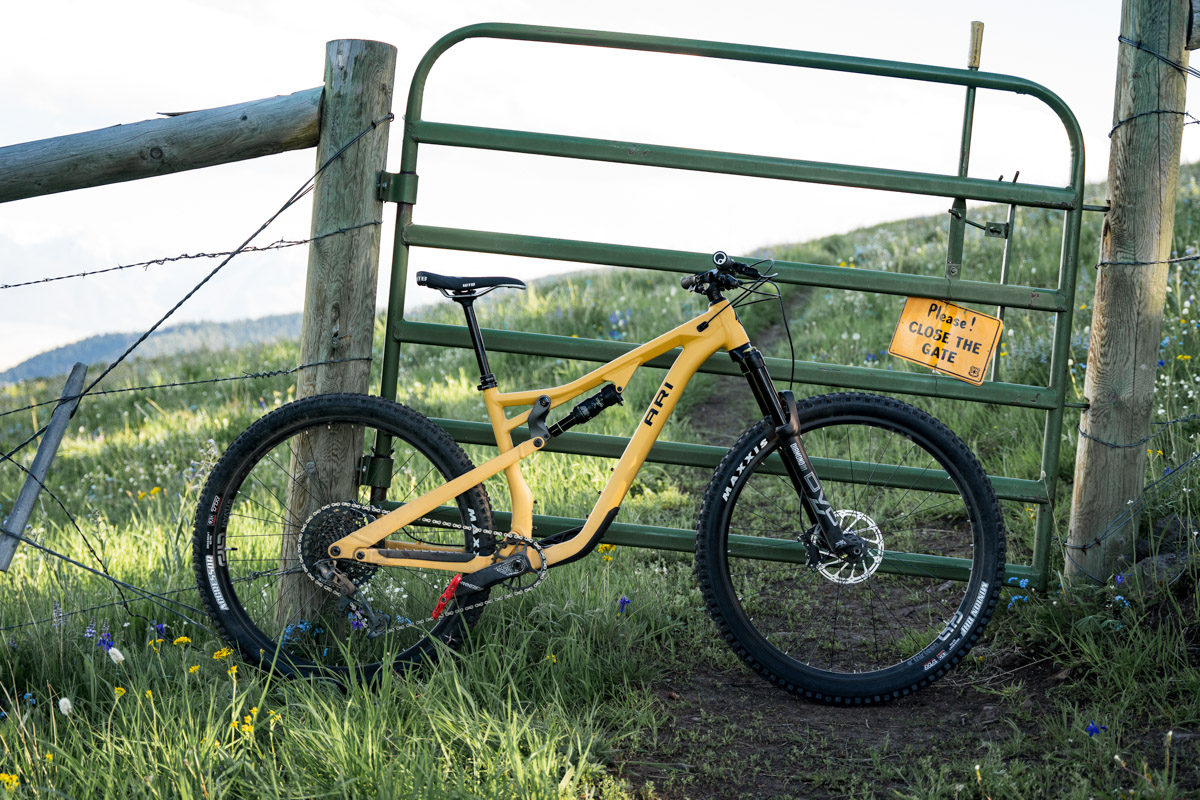
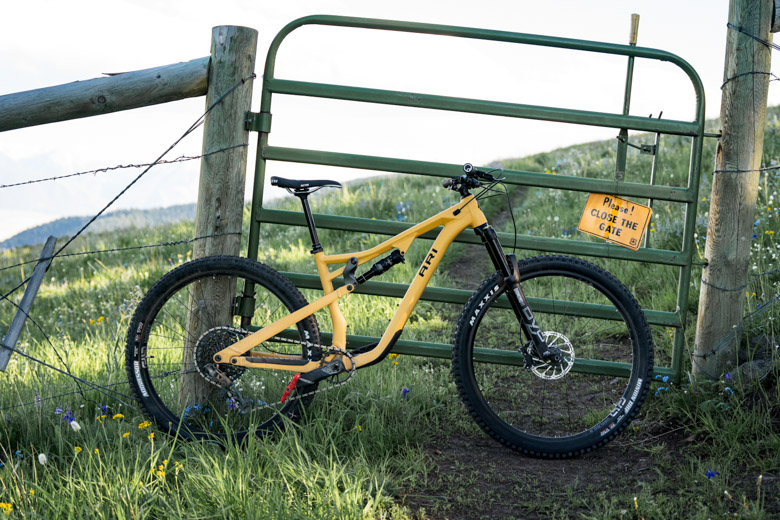
Zach Altman


Zach Altman
Price: $3,299
Suspension: 140mm (front), 135mm (rear)
Tires: 29 x 2.5
Gears: 1 x 12
What we like: A capable, well-equipped, and versatile mountain bike at a competitive price.
What we don't: Heavy and a bit barge-like on technical descents; no lock out on the front fork.
See the Ari Cascade Peak Pro
Utah-based Ari (formerly known as Fezzari) overhauled their entire brand in 2024, and they made some major changes in their lineup. Enter the new version of their mid-level full-suspension workhorse, the Cascade Peak. The latest updates to this bike have given it a more aggressive geometry and slightly lighter build. I spent a big chunk of spring and summer in Southwest Montana taking the Pro version of the bike through its paces on the best and roughest single track the region has to offer. While the bike was noticeably hefty, I came away impressed by its capability on nearly any terrain, including long, rough, and remote days. To see more of the best options on the market, take a look at our roundup of the best trail mountain bikes. And if you're looking to spend a bit less, we also have recommendations for the best budget mountain bikes under $1,500.
With updated geometry that makes for both comfortable and aggressive riding, the Cascade Peak Pro is built for tackling a range of downhill trails. The Pro’s burly, 2.5-inch Maxxis tires grip well onto loose dirt and roll over rocks and roots with ease. Sure, the bike’s 140 millimeter front fork doesn’t have the suspension of a dedicated downhill bike, but I found it more than enough for most terrain. And as a rider who generally spends more time on the uphill than the downhill, the minimal suspension isn’t a deal-breaker for me. My only complaint regarding this bike’s downhill performance is its weight: Despite the latest update shaving about half a pound off the previous version, my large size still weighed a little over 34 pounds without pedals. While that's about on par for an aluminum trail bike, it did lead to a barge-like ride on the downhill. On my first few rides, cornering felt cumbersome, and the bike wasn’t as responsive as I'm used to. That said, I quickly got used to the heft, and after a bit of practice, I could point and shoot with ease.
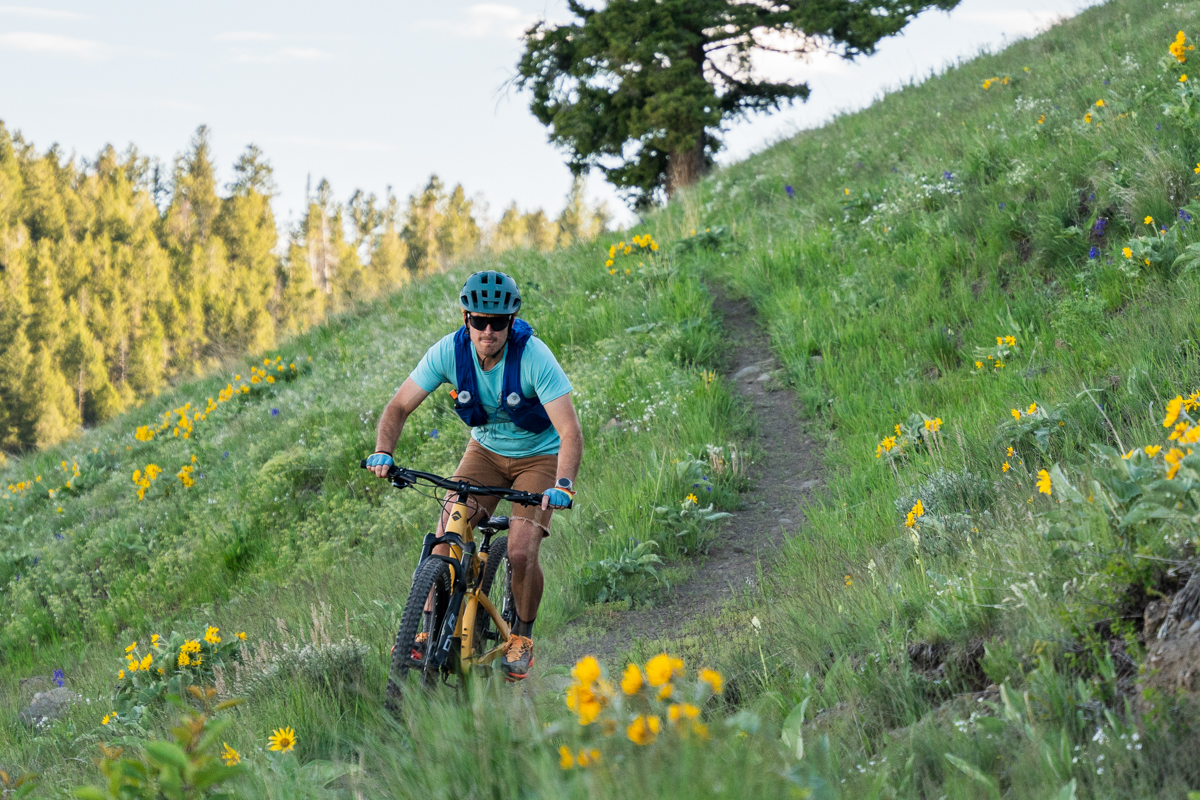
Ascents in the Montana mountains are long, burly, and plentiful. As someone who's grown familiar with the “sufferfests” that ensue with these climbs, I'm used to locking out my front fork to maximize the efficiency of my pedaling. Needless to say, I was a bit worried when I saw that the DVO Diamond front fork on the Ari doesn’t have a full lockout setting. Rather, it features a “low-speed compression” dial that can be softened or tightened on the go. Despite my anxiety, this proved totally sufficient for my uphill needs. The only time I really craved a lock setting was when pedaling out of the saddle on super steep hills, but those moments were few and far between. The 2.5-inch wide tires that came stock with the bike had no problem rolling over rocks on the uphill, and if there was any bit of roughness to the trail, I’d keep the rear fork in its “middle” compression position for a bit of flex. The Pro also has “enhanced anti-squat and anti-rise tuning” along with Ari's Tetralink technology that, in theory, keeps the suspension from reacting to pedal strokes and the force of the chain. In the end, I was pleasantly surprised by the Pro’s ability to tackle the steep inclines and rough terrain I put it through.
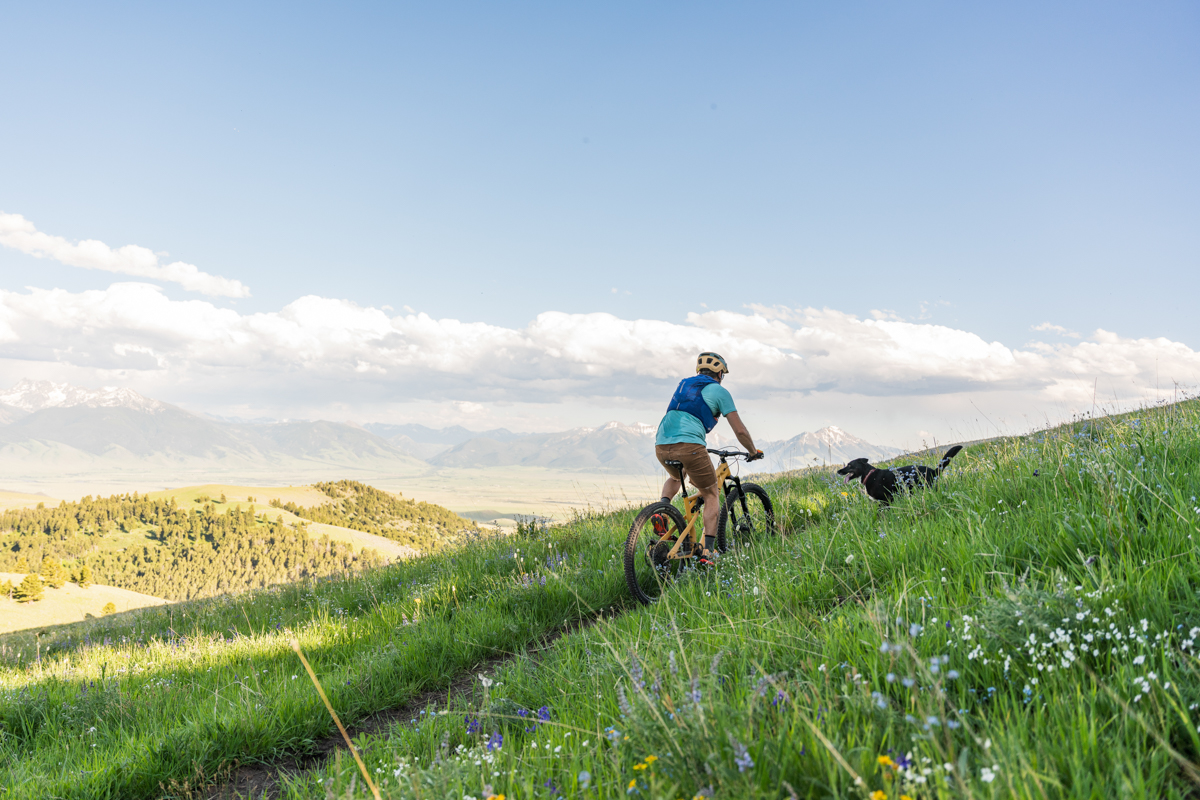
The Cascade Peak Pro is designed to be a versatile bike for intermediate riders. While it’s not a race bike that can charge uphill, and it’s not a dedicated downhill bike that’s built for bombing the steepest of descents, it can tackle most terrain in between. I had the most fun on medium-length rides with a great mixture of ascents and descents. The more time I spent on the bike, the more I enjoyed riding it. Whether at the end of four hours or more in the saddle or a quick after work spin on the local flow track, I always found myself loading up the bike with a big grin on my face.
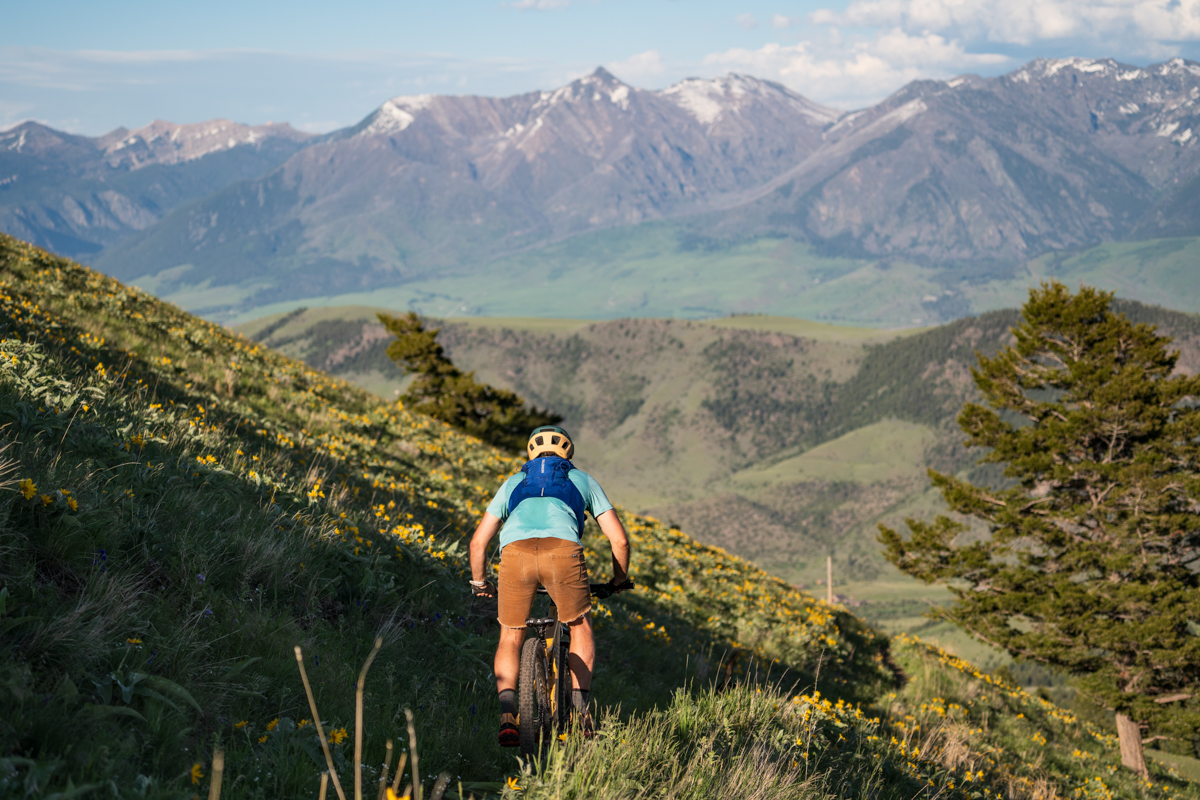
It’s clear that Ari spent time refining the frame of this bike in its most recent update. In previous versions, the frame was overbuilt and complicated, but I like the understated and clean aesthetics of the latest model. I was skeptical of Ari's claim that the epoxy-infused paint on the frame is resilient to scratches and dings, but after nearly 200 miles of use and abuse, the frame is free from any damage. The paint also gives the bike a classy matte finish. And as I mentioned above, the most recent version features a lighter weight frame (by about 0.5 lb.), though it’s still noticeably heavy on the downhill. Lastly, the frame features a few thoughtful details, including a custom-molded chainstay protector that eliminates chain slop and commotion. There are also two water bottle mounts and internally routed cables on the front triangle.
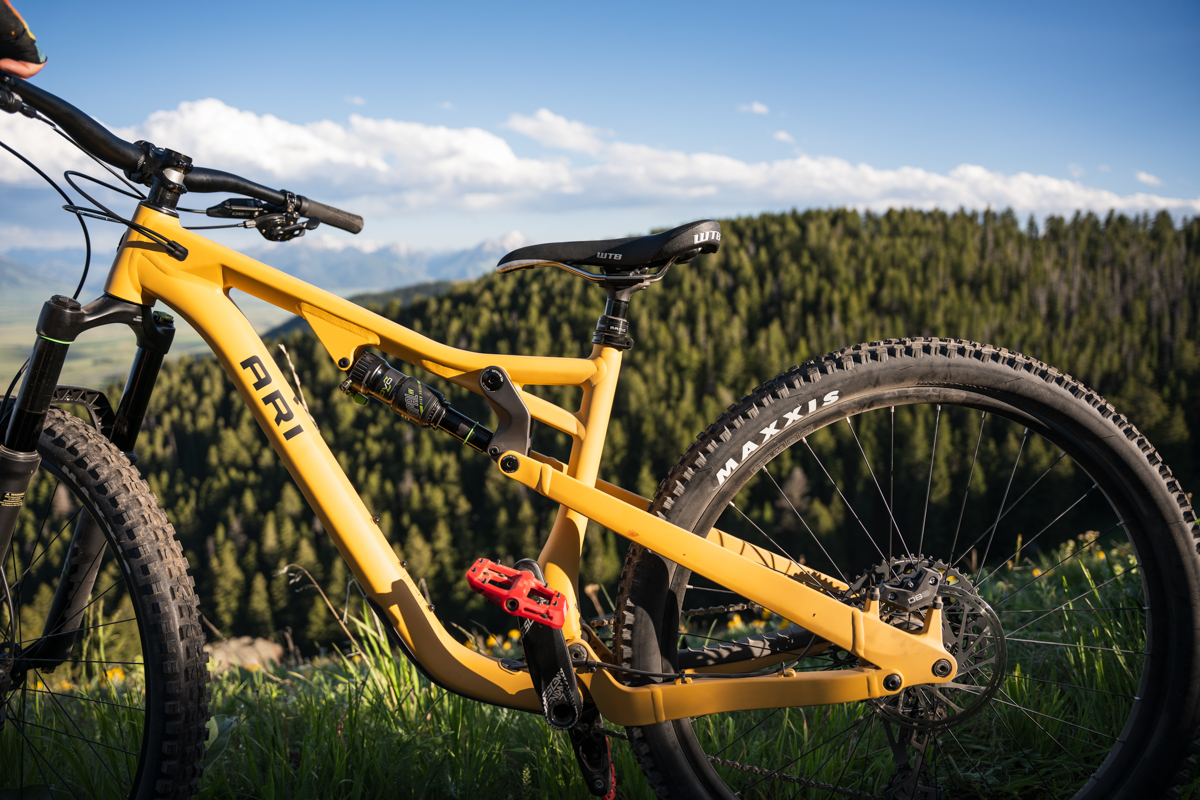
The latest Cascade Peak features a slacker head tube angle (65 degrees), steeper seat tube angle (78 degrees), and a 20-millimeter longer reach than the previous version. These changes put the bike’s geometry in line with most modern and aggressive trail bikes on the market. The head tube angle helps the bike roll over obstacles with ease on steep tracks, and the updated seat tube pushes the rider forward to more evenly distribute weight between the front and rear tires, which improves climbing performance. The lower bottom bracket also helped with stability on incised single tracks. Together, these upgrades proved beneficial to this bike’s performance on both the up and downhill. Lastly, the adjustable GA-Link makes it possible to further customize the headtube angle and bottom bracket height for a more personalized ride.
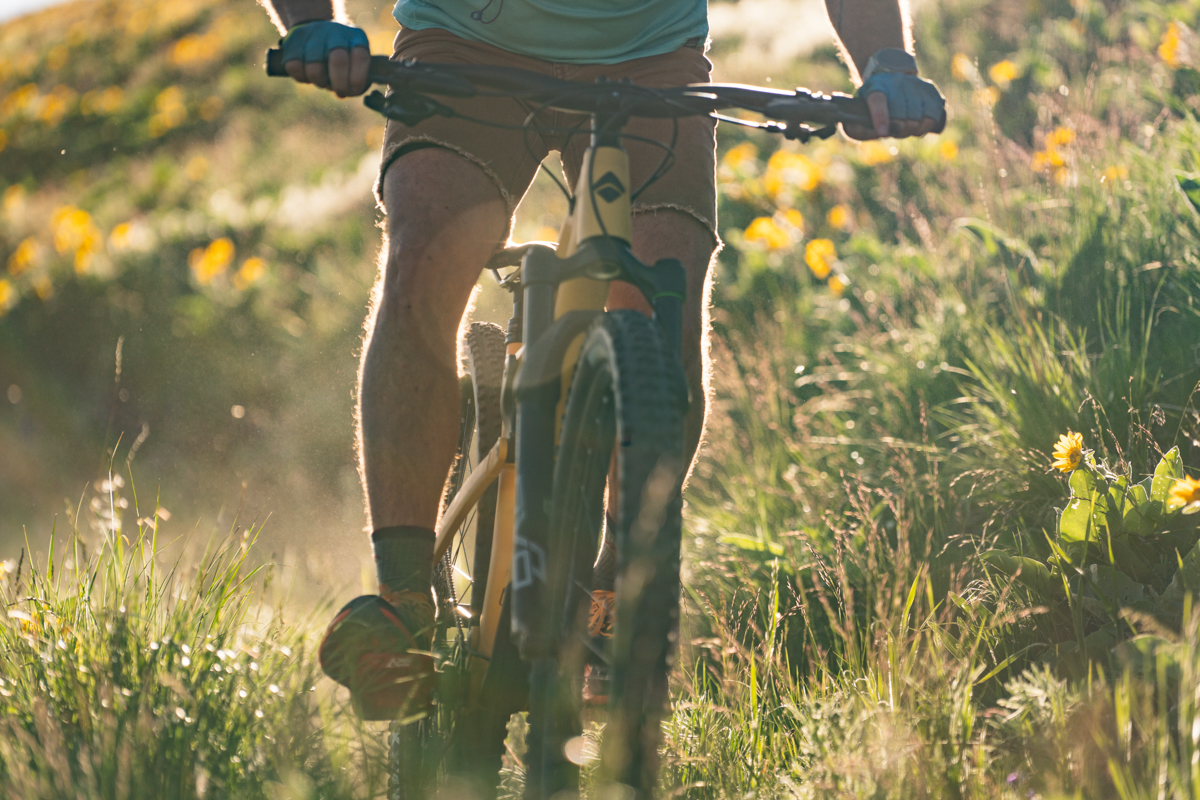
The Cascade Peak hits a sweet spot in terms of suspension. While most dedicated cross-country bikes feature a stiffer suspension (about 120mm of travel or less) and dedicated downhill bikes have a softer suspension (about 170mm of travel or more), the Cascade Peak Pro lands right in the middle with 140 millimeters of travel in the front and 135 millimeters in the rear. In practice, the Cascade Peak Pro did feel like it was hitting the “Goldilocks zone”: Just the right amount of stability for the uphill, but enough dampening to feel confident at speed on the downhill. To be sure, it doesn’t offer quite enough suspension for big hits and laps on steep descents, and it also isn’t the stiffest set up for long, arduous climbs, but it's middle ground makes it a compelling quiver-of-one option.
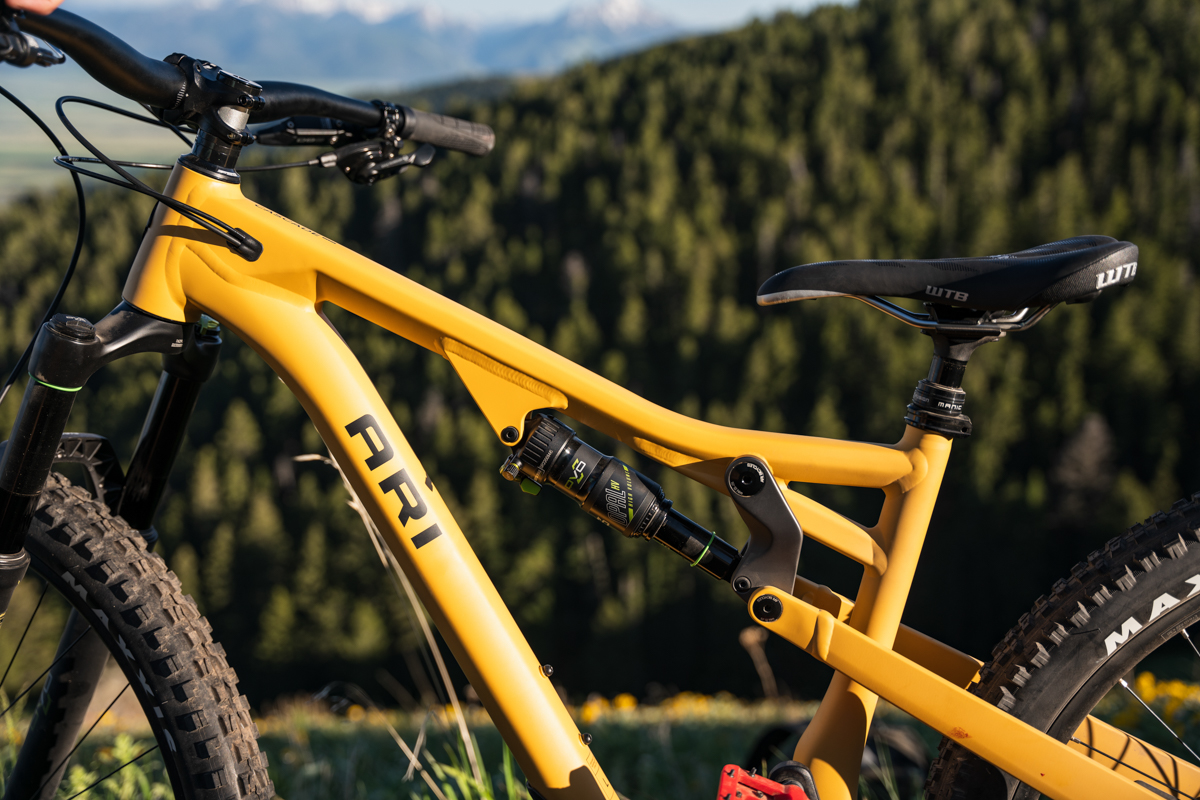
Ari’s consumer-direct platform is the leading factor in their competitively low pricing. Comparable bikes, like Specialized’s Stumpjumper, cost about a grand more than the Cascade Peak Pro. Coupled with a lifetime warranty for the frame, the Cascade Peak Pro boasts serious value. What’s more, Ari’s responsive customer service makes it easy to source parts or ask questions, and they also offer 12-month financing and lease-to-own programs on all bikes in their fleet. As expected from the brand, assembling the bike upon arrival is relatively simple. In fact, the bike arrived in two boxes with most components already installed. While it’s possible to fine-tune all parts at home, it’s never a bad idea to stop into a bike shop for professional help. And if you want to get ahead of the task, Ari offers a complimentary 23-point custom fitting that ensures the bike is fitted to your weight and height upon arrival.
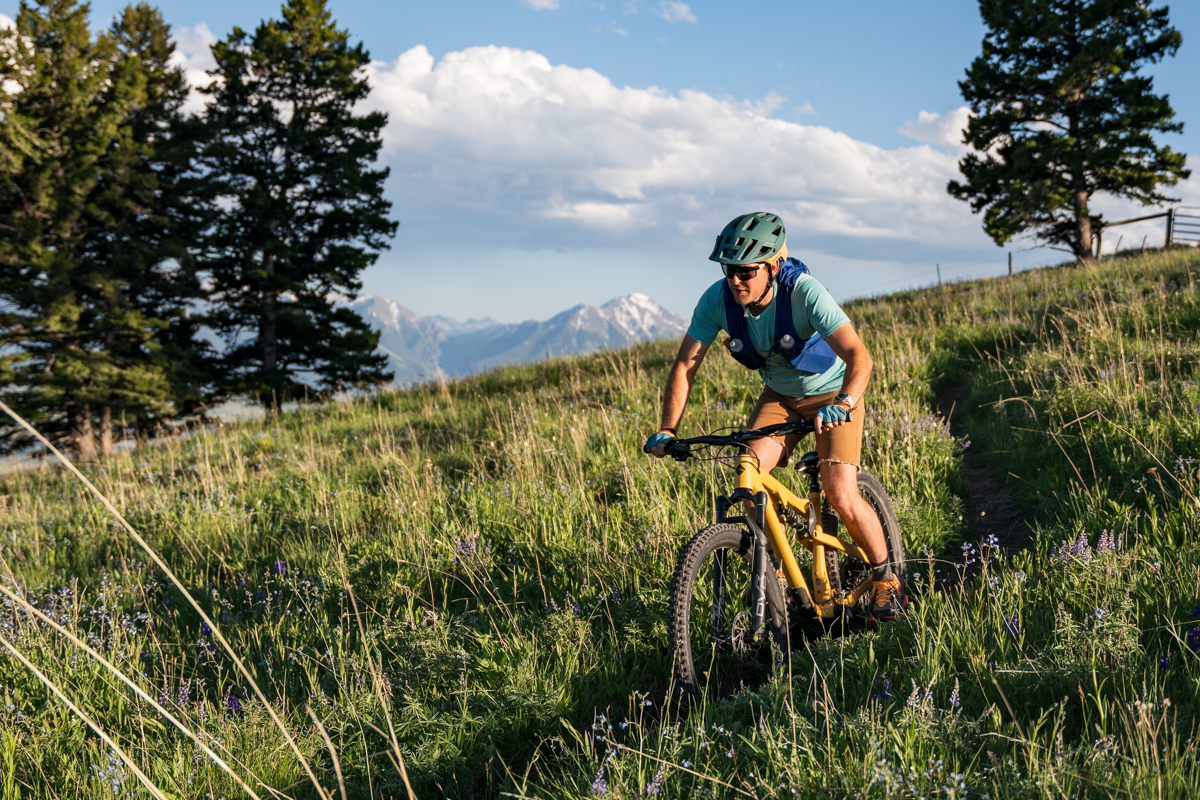
SRAM drivetrains are common among budget bikes, but the Pro’s GX Eagle proved itself to be a high-quality and easy-to-maintain system. It features 12 gears, which I found more than enough for most climbs and descents. It’s possible to upgrade the GX Eagle to a wireless system, but I had no complaints with the standard drivetrain that the Cascade Peak Pro came with.
While Fox and Rockshox suspensions are a bit more ubiquitous among mountain bikes, the DVO suspension on the Cascade Peak Pro shouldn’t be discounted. The Pro has a 140 millimeter DVO Diamond D1 front fork and a 135 millimeter DVO Opal T2 shock in the rear. The front fork has two dials for adjusting the low-speed and high-speed compression on the go. The rear shock was already tuned when the bike arrived, and Ari included a suggested pressure for the front fork based on the rider information I provided them ahead of time. Impressively, their suggestion was exactly right. And as mentioned above, the front suspension doesn’t feature a full lockout mode, which concerned me at first, but their Tetralink design impressed me with its fine balance of stability and maneuverability.
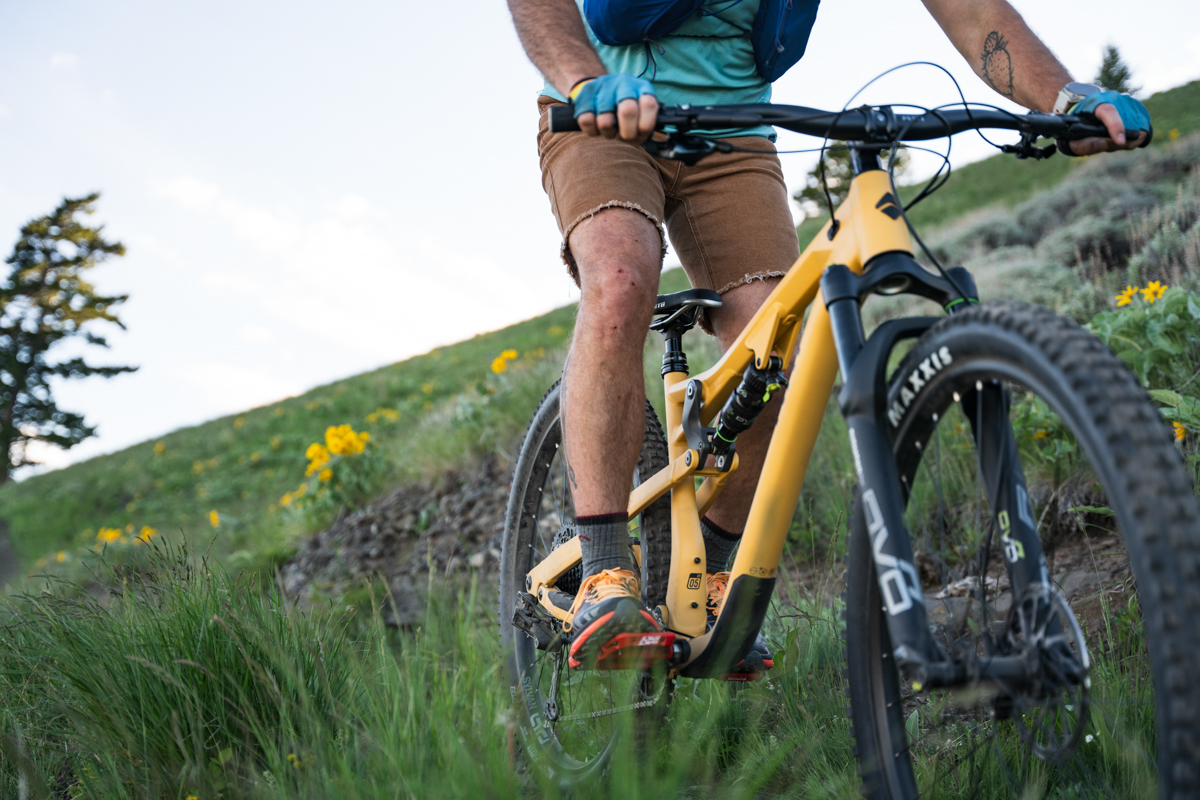
The rear shock was similarly high-performing. It features three settings: open, closed, and a middle setting. I found myself using the middle setting on most climbs, which struck a nice balance between absorption and bounce. That said, I did notice a fair amount of sag when standing up to sprint up steep hills, but this wasn’t a deal breaker either. When fully opened, the rear shock offered enough support for a smooth and confidence-inspiring descent, even on rocky and root-filled trails.
The Pro’s SRAM DB8 brakes are labeled as a “no-muss, no-fuss” option, meaning they require little maintenance. Most notably, they use mineral oil for brake fluid rather than DOT fluid. And true to the all-around nature of this rig, the 180 millimeter rotors offer enough surface area of strong braking, but cut down on weight and cost. On the trail, this brake system proved solid and consistent. No matter my speed, I was never wanting for more braking power.
With 29-inch wheels and beefy, 2.5-inch-wide Maxxis tires, the Cascade Pro is built to handle most trail obstacles thrown its way. The tires are tubeless-ready too, which makes it easy to upgrade to a tubeless setup, which will shave a bit of weight and bump durability. Similarly, a flip chip in the rocker setup allows the back tire to be swapped out for a smaller 27.5-inch tire, which lends to a bit more playfulness on the trail.
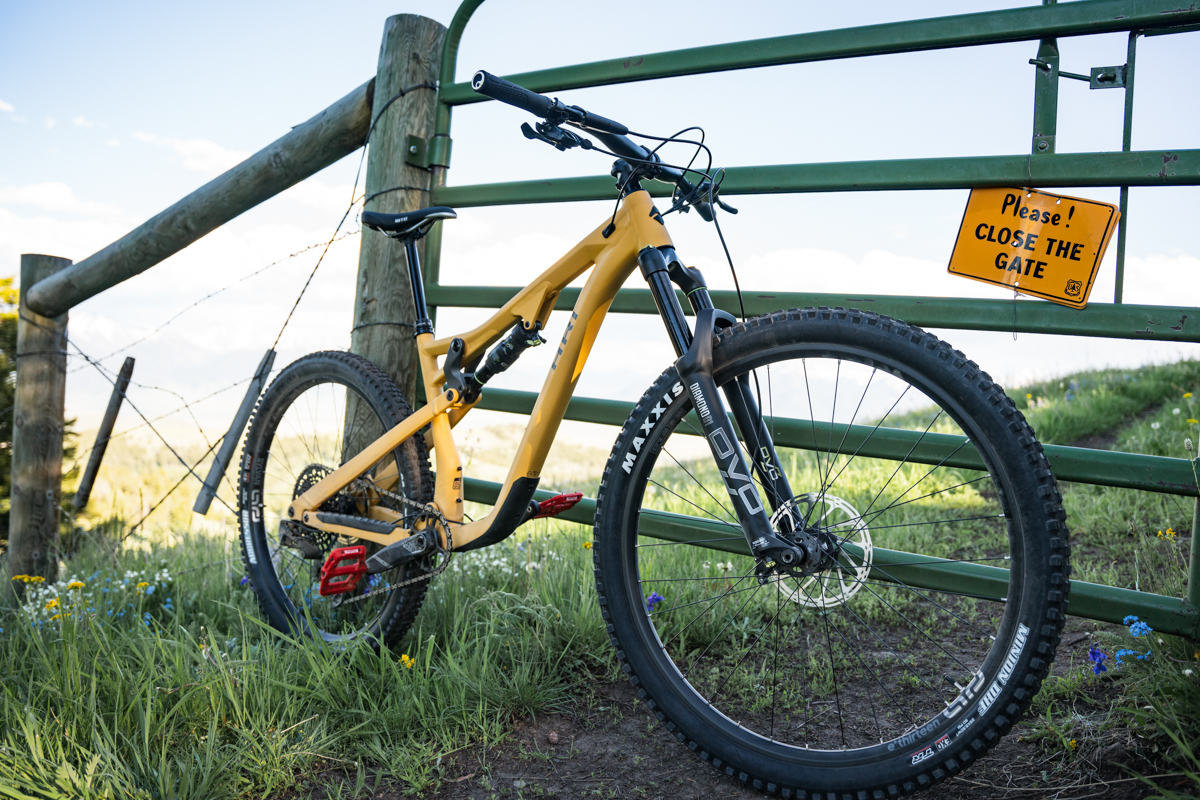
I tested the Pro version of the Cascade Peak, but the bike comes in two other versions: the Cascade Peak Comp and Elite. Both feature the same frame as the Pro but have slightly downgraded components. For instance, the Comp has less premium Suntour shocks and a 10-speed Microshift Advent drivetrail, while the Elite has the same shocks as the Pro, but has an 11-speed Shimano CUES drivetrain. Though not quite as high-end or performance-focused as the Pro, the Comp and Elite offer more wallet-friendly constructions for those on a budget or just getting into the sport. All are offered in S-XL sizes, a few matte colors, and are backed by Ari’s lifetime warranty.
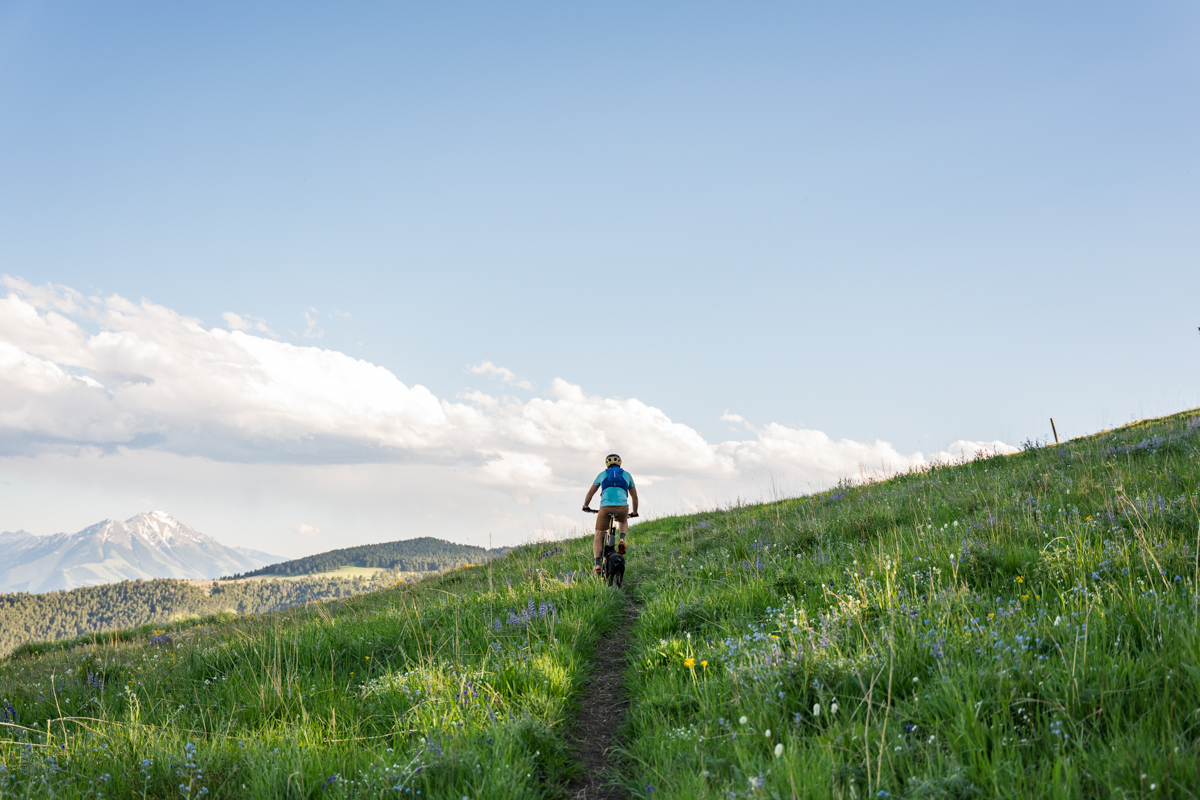
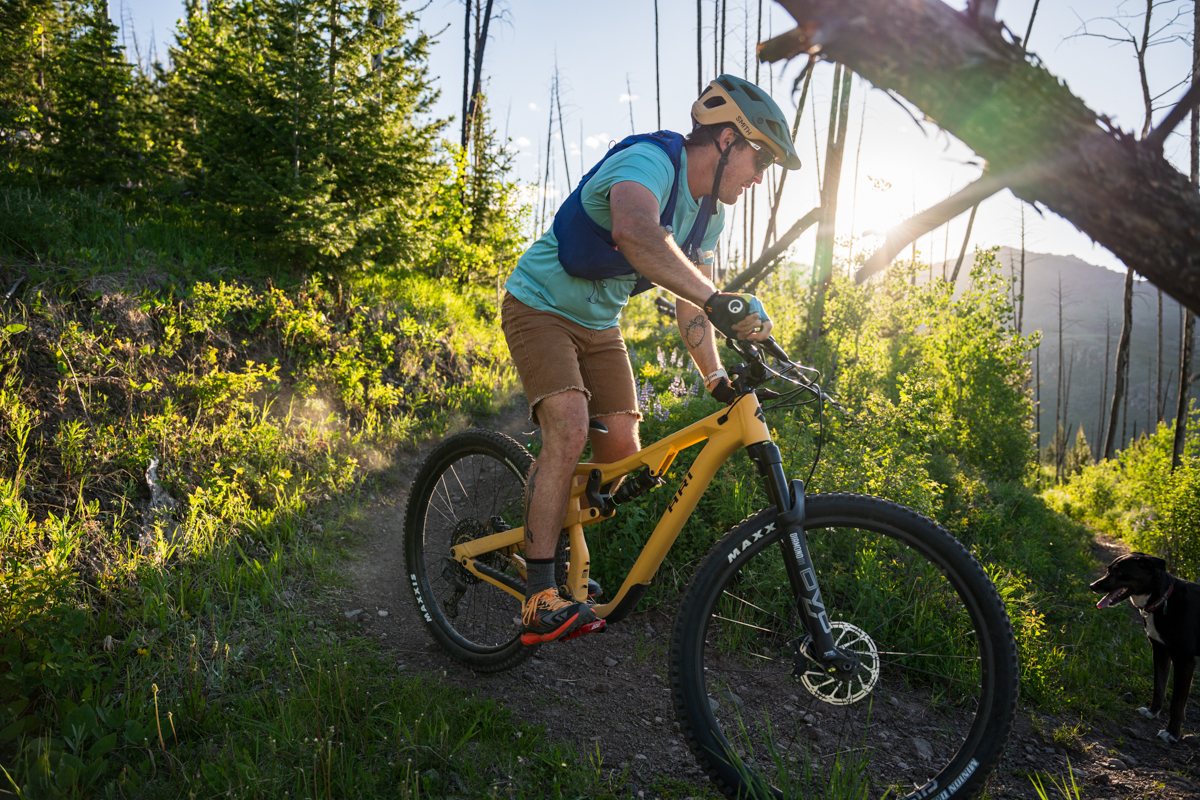
| Bike | Price | Frame | Suspension | Tires | Drivetrain |
|---|---|---|---|---|---|
| Ari Cascade Peak Pro | $3,299 | Aluminum | 140mm/135mm | 29 x 2.5 in. | SRAM GX |
| Polygon Siskiu T8 | $2,399 | Aluminum | 140mm/140mm | 27.5 x 2.6 in. | Shimano SLX |
| REI Co-op DRT 3.3 | $3,399 | Aluminum | 140mm/130mm | 29 x 2.4 in. | Shimano SLX |
| Ibis Ripmo AF | $2,999 | Aluminum | 160mm/147mm | 29 x 2.5 in. | SRAM UDH |
Ari’s Cascade Peak Pro is among our favorite mountain bikes for its great balance of performance and value, but the market is not without competition. For instance, Indonesia-based Polygon has a bike that has a lot in common with the Cascade Peak Pro: the Siskiu T8 has a nearly identical geometry and suspension system, as well as a 12-speed shifter and beefy tire set, making it another versatile choice for those wanting an all-around ride. If your metric is purely cost, Polygon has Ari beat with a significantly lower price tag. That said, in our experience, Ari’s customer service has Polygon beat. Not only is Polygon tough to get a hold of, they don’t offer the same lifetime warranty as Ari. In our opinion, it’s worth spending up for peace of mind.
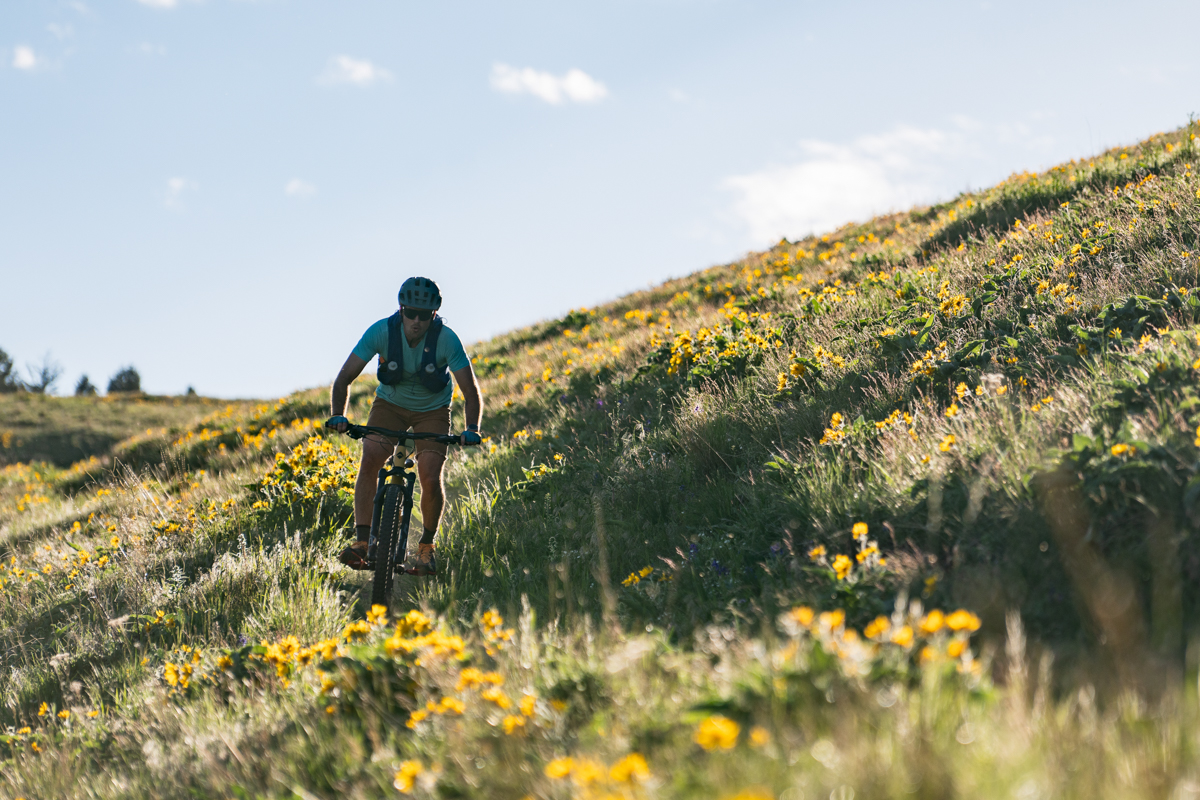
Co-op Cycles by REI has also built out an extensive and budget-friendly lineup in recent years, and most directly comparable to the Cascade Peak is their DRT 3.3. Like the Cascade Peak Pro, the DRT 3.3 has 140 millimeters of travel in the front suspension, as well as 29-inch tires ideal for tackling rocky and root-filled trails. It also features Shimano’s renowned SLX 12-speed drivetrain. That said, the Cascade Peak is a bit more well-rounded with a more aggressive geometry that performs better on the downhill. And although purely aesthetic, we think the Cascade Peak is a better looking bike. Still, there’s no denying the convenience of REI, which includes in-store availability for test rides, a year of free adjustments, and shop services at their locations around the nation (members get 20% off shop services, too). The DRT 3.3 is a bit pricier than the Cascade Peak Pro, but some might find REI’s one-stop-shop appeal worth it.
A final bike to consider is the Ibis Ripmo AF. The Ripmo AF has a very similar geometry, comparable drivetrail, and nearly identical price as the Cascade Peak (depending on the build). Where the two bikes differ is suspension: The Ripmo offers 20 millimeters of extra give in the front, meaning it will be a better choice for those looking to spend more time riding lifts or in the bike park. In our opinion, the Cascade Peak Pro offers a bit more versatility than the Ripmo—especially on the uphills—which is what has secured it a spot among our favorite mountain bikes for the last few seasons.
Back to the Ari Cascade Peak Pro Review See our Trail Mountain Bike Guide